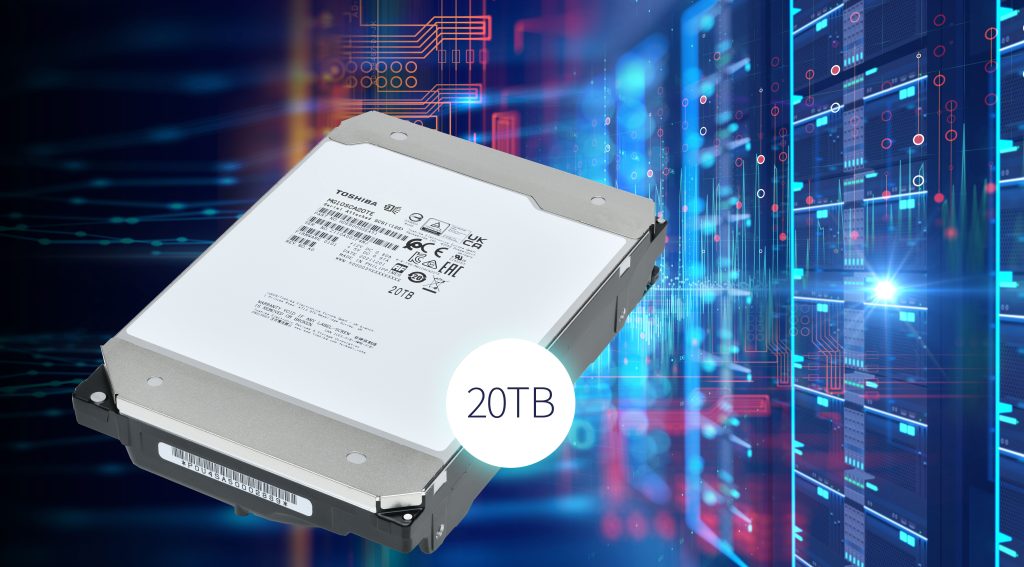21.03.2024
World Backup Day: Toshiba Encourages People to Backup Their Data Regularly

Canvio Flex smart storage drive simplifies the backup of mobile devices, even on the go
Düsseldorf, Germany, 21 March 2024 – Toshiba Electronics Europe GmbH (Toshiba) emphasises the importance of this year’s World Backup Day on 31 March, the day to prevent data loss. This independent initiative responds directly to concerns about data loss on devices like laptops and smartphones and raises awareness about the value of backups and data preservation. Toshiba’s Canvio Flex external hard disk drive makes mobile device backups even more accessible by allowing users to make copies of important files directly from their smartphone – without needing a laptop or PC.
According to research undertaken by numerous groups, only a tiny percentage of people make frequent backups of their digital data. Even more concerning is that a significant section of our continually data-generating society never backs up, leaving them vulnerable to substantial data loss dangers. An independent survey conducted by Acronis, a world leader in cyber protection, reveals that 41% of all individual users rarely or never back up their computers or mobile devices. According to the most recent report, 72% of all users had to recover from backup at least once that year, implying that some users who did not back up had permanently lost data.
As Larry Martinez-Palomo, Vice President, Head of Storage Products Division, explains: “In a world that is becoming increasingly digital, the need for flexible storage solutions is growing. Photos, videos, and important documents accumulate on our devices – especially smartphones. World Backup Day helps raise awareness of the importance of backing up these files more regularly. The Toshiba Canvio Flex external hard drive makes backups easy – connect the USB cord to your smartphone or other device and drag and drop to secure the future of your digital files and memories.”
A backup plan is one of the most critical strategies to preserve and keep data safe. Backing up ensures that even if the device slips into the wrong hands, a backup of the most important files is retained, secure, and easily accessible. The Toshiba Canvio Flex works interchangeably with most major device platforms and operating systems. Preformatted for Macs, Windows PCs, smartphones, and tablets*, this drive allows seamless access to data, and sharing between devices.
* Please check out the Canvio Flex compatibility list: https://www.canvio.jp/en/compati/hdd/ot_ehdd/flex/index.htm
Please download the Press Release here.
16.08.2023
HDDs have a long life ahead in certain workloads
A Podcast by Antony Adshead, Rainer Kaese from Toshiba Electronics Europe
Listen to the podcast here: https://cdn.ttgtmedia.com/rms/editorial/podcastToshibaJuly23.mp3
Spinning disk hard drives are far from dead, and with data volumes set to explode, there are use cases that suit them well. That’s the view of Rainer Kaese of Toshiba in this podcast.
Some have predicted the imminent demise of spinning disk hard drives (HDDs), but Rainer Kaese, senior manager for business development in storage products at Toshiba Electronics Europe, argues they have many more years life left in them.
Core to his argument is that with the volume of data expanding rapidly, HDDs offer cost-effective storage that can cope with huge capacity needs and the right performance for particular workloads if their capabilities are harnessed correctly.
Antony Adshead: How long should we expect spinning disk HDDs to be around for in the enterprise, and why?
Rainer Kaese: That’s a really good question and there’s a clear answer: for many more years. So, at least five, if not 10, or even more years.
And there’s a quite simple reason: the data we have to store in enterprise and cloud is exploding. It’s growing exponentially and it has to be stored in a competitive way. People don’t want to pay all their money for it. And spinning disks are and will be the most economical way to store all these zettabytes of data.
If we compare it with SSDs [solid-state drives], the bit cost, the capacity cost of hard disk drives is currently around 1/7th. It used to be 1/10th. Now it is 1/7th, but if you look at the cost curve of the price per capacity of HDD and SSD they are dropping as parallel lines. And we know that parallel lines never meet.
So, hard disk drives are, and will always be, much cheaper in terms of cost per capacity than SSDs.
Adshead: What workloads will be most appropriate for HDDs in the coming five to 10 years? Here, we’re assuming flash will increase its share at the higher levels of performance.
Kaese: If it is about performance, if it is about throughput, agility, IOPS and things, then flash will lead.
However, there are all this petabytes and zettabytes of bulk data, and it’s not just what we know today. There will be more data coming out of this internet of things, Industry 4.0 – so much more data will be created and this data needs to be saved, stored and will also need to be analysed; that’s why we store this data.
And if you look at the storage landscape for that application where you are storing and analysing a lot of data, then on one hand, we can say that flash will be much more expensive. On the other hand, there is also tape. Tape is a lot cheaper than flash and tape is a lot cheaper than HDDs, but tape is not an online medium. So, for online storage […] and especially online analytics, tape cannot be used.
In this middle field of active online data, of massive amounts, that will be the playground for hard disk drives.
Adshead: How can spinning disk HDD compete against its solid-state rivals?
Kaese: If we talk about performance, we have to see that the HDD is way slower than any SSD. So, a single NVMe component is 5x to 20x compared to hard disk drives.
However, the HDD’s domain is large online storage, [and so] we don’t compare single components any more. Large online storage means a lot of hard disk drives. A lot of small HDDs can join their rather slow performance to one big, agile storage, and the industry has implemented many ways [to make] hard disk drives a little more agile. And this … leads to large online storage.
All these videos, this online data, it is instantly there, but it is coming from hard disk drives not from NVMe, and this is because HDDs have joined forces with many [of them to be] able to deliver the performance required.
09.05.2023
Toshiba attains Microchip Adaptec® interoperability assurance qualification for its flagship SAS-based HDDs

Düsseldorf, Germany, 9 May 2023 — Toshiba Electronics Europe GmbH has further underlined the application versatility of its hard disk drive (HDD) products. Having already shown the complete compatibility of certain models in its high-capacity MG10 Series with the Microchip Adaptec® redundant array of independent disks (RAID) controllers and host bus adapters (HBAs), extensive Microchip-conducted compatibility testing has been done in relation to further products.
SAS 12GB/s versions of the enterprise-grade MG10SCA20TE and MG10SCA20TA HDDs have gained certification in relation to both the Adaptec SmartRAID 31xx and 32xx storage adapter series. They have subsequently been added to the Microchip compatibility list that its customers refer to. This follows on from the SATA 6GB/s MG10ACA HDD model getting Adaptec SmartRAID 31xx/32xx interoperability qualification at the end of 2022.
Featuring elevated data storage capacities and SAS 12GB/s interfacing, the MG10SCA20TE/A HDDs from Toshiba are supplied in compact 3.5-inch form factors. They each feature a 10-disk arrangement, with a helium-filled design and a rotational speed of 7,200rpm.
As Rainer W. Kaese, Senior Manager Business Development Storage Products at Toshiba Electronics Europe GmbH, explains; “By having assured interoperability between Microchip and Toshiba products, thanks to the comprehensive testing work carried out by Microchip, we are making data storage implementation much easier for our customer base. It means that HDDs plus the accompanying HBAs and storage controllers can be sourced with total confidence in their combined operational performance and long-term reliability.”

